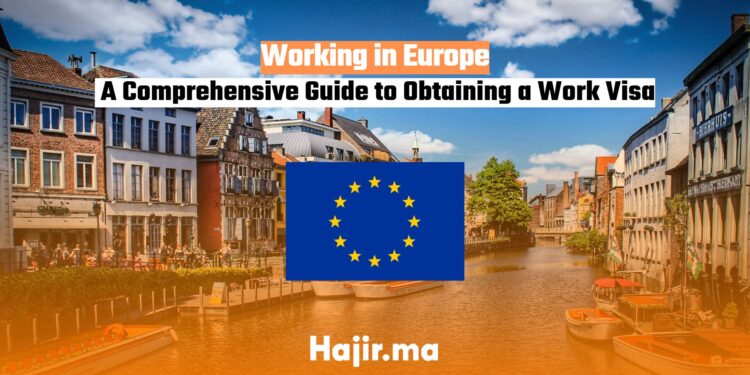Work Visa in Europe: Your Gateway to International Career Opportunities
Are you dreaming of advancing your career in the heart of Europe? With its diverse cultures, robust economies, and high quality of life, Europe continues to attract professionals from around the globe. However, securing a work visa can be a complex process. This comprehensive guide will walk you through everything you need to know about obtaining a work visa in Europe, helping you turn your professional aspirations into reality.
Understanding European Work Visa Types
Before diving into the application process, it’s crucial to understand the different types of work visas available in Europe:
- EU Blue Card
The EU Blue Card is designed for highly skilled non-EU nationals. It offers a fast-track to residency and, in some cases, citizenship. This visa is particularly attractive for professionals in in-demand sectors. - Intra-Company Transfer Visa
If you’re being transferred to a European branch of your current company, this visa allows you to continue your work within the same organization while relocating to a European country. - General Work Permit
This is the standard work visa required for non-EU citizens who want to work in Europe. The specific requirements can vary by country and job type. - Freelance or Self-Employment Visa
For those planning to work as freelancers or start their own businesses in Europe, this visa allows for self-employment. Requirements can differ significantly between countries. - Seasonal Work Visa
Some countries offer specific visas for seasonal workers, particularly in sectors like agriculture and tourism.
Key Requirements for Obtaining a Work Visa in Europe
While requirements can vary depending on the country and visa type, here are some common prerequisites:
- Valid Passport: Your passport should be valid for at least six months beyond your planned stay in Europe.
- Job Offer: Most work visas require a valid job offer from a European employer. The employer may need to prove they couldn’t find a suitable EU candidate for the position.
- Qualifications and Experience: You’ll need to demonstrate that you meet the educational and professional requirements for your role. This may include providing proof of qualifications, relevant work experience, and language proficiency.
- Health Insurance: Comprehensive health insurance coverage valid in Europe is typically required.
- Clean Criminal Record: Many European countries require a clean criminal record or police certificate as part of the visa application.
- Language Proficiency: Depending on the country and job, you may need to prove proficiency in the local language or English.
Read also : Study Abroad: A Guide to Comparing Education Systems Around the World
The Work Visa Application Process
While specific steps can vary by country, here’s a general overview of the application process:
- Research and Preparation: Start by researching the specific requirements for your desired country and visa type. Gather all necessary documents and information.
- Find a Job: Secure a job offer from a European employer. They may need to sponsor your visa application.
- Submit the Application: Apply for the work visa through the embassy or consulate of your destination country. This may be done in person, by mail, or online, depending on the country’s procedures.
- Pay Fees: Work visa applications typically involve fees. Be prepared to pay these at the time of application.
- Attend an Interview: You may be required to attend an in-person interview at the embassy or consulate.
- Wait for Processing: Processing times can range from a few weeks to several months. Be patient and responsive to any requests for additional information.
- Receive Your Visa: If approved, you’ll receive your work visa, allowing you to enter and work in the European country.
Tips for a Successful Work Visa Application
- Start Early: Begin the application process well in advance of your intended start date, as processing can take time.
- Be Thorough: Ensure all required documents are complete and accurate. Any errors or omissions can lead to delays or rejections.
- Seek Expert Help: Consider consulting with an immigration lawyer or specialized visa agency to navigate complex requirements.
- Highlight Your Skills: Clearly demonstrate how your skills and experience make you a valuable asset to the European job market.
- Learn the Language: Even if not required, showing effort to learn the local language can strengthen your application.
- Stay Informed: Keep up with any changes in visa regulations or requirements for your chosen country.
Challenges and Considerations
While working in Europe can be an enriching experience, it’s important to be aware of potential challenges:
- Language Barriers: Even in countries where English is widely spoken, knowing the local language can be crucial for daily life and career advancement.
- Cultural Differences: Be prepared to adapt to new cultural norms in both social and professional settings.
- Cost of Living: Some European cities have high living costs. Research and budget accordingly.
- Visa Renewals: Understand the process for renewing your work visa or transitioning to permanent residency if that’s your goal.
FAQs
1. What is the EU Blue Card?
The EU Blue Card is a work permit for highly skilled non-EU citizens. It offers a fast-track path to residency and, in some cases, citizenship.
2. How do I apply for an Intra-Company Transfer Visa?
To apply for an Intra-Company Transfer Visa, you typically need a job offer from a European branch of your current company. The application process involves submitting documents to the relevant embassy or consulate.
3. Do I need to speak the local language for a work visa?
While not always required, speaking the local language can greatly enhance your chances of getting approved and integrating smoothly into the workplace and community.
4. How long does it take to process a work visa application?
Processing times can vary widely, ranging from a few weeks to several months. It’s essential to start the application process well in advance.
5. Can I bring my family with me on a work visa?
Many work visas allow you to bring your family, but the specific requirements and procedures can vary by country. Ensure you understand the rules for family reunification in your destination country.
6. What happens if my work visa application is denied?
If your application is denied, you typically have the right to appeal the decision. It’s important to understand the reasons for the denial and address any issues before reapplying or appealing
Conclusion
Obtaining a work visa in Europe is a significant step towards an international career. While the process can be complex, proper preparation and understanding of the requirements can greatly increase your chances of success. Remember, each European country has its own specific rules and procedures, so always refer to the official government websites of your chosen destination for the most up-to-date information.
Whether you’re seeking new professional challenges, international experience, or a change of lifestyle, a work visa in Europe can open doors to exciting opportunities. With persistence, patience, and the right approach, you can make your dream of working in Europe a reality.
Read also : Visa Procedure : The Ultimate Guide






